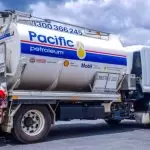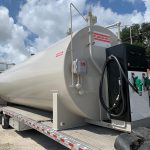When it comes to managing fuel resources for your business, one of the crucial decisions you’ll face is whether to lease or buy fuel equipment. Both options have their merits and drawbacks, and the right choice depends on your company’s specific needs and circumstances. Let’s explore the advantages and disadvantages of each approach.
Leasing Fuel Equipment
Pros
- Lower Initial Costs
Leasing fuel equipment allows companies to access high-quality tanks, bowsers, and ancillary items without a significant upfront investment. This can be particularly beneficial for businesses looking to conserve capital for other areas of operation.
- Access to Modern Equipment
Companies like Pacific Fuel Solutions offer modern equipment solutions through their loan programmes, ensuring that businesses have access to up-to-date technology that meets current safety and environmental standards.
- Flexibility
Leasing provides the flexibility to upgrade or change equipment as your business needs evolve. This can be especially advantageous in an industry where technology and regulations are constantly changing.
- Maintenance Support
Many leasing agreements include maintenance and support, which can reduce the burden on your company’s resources and ensure that equipment is always in top condition.
Cons
- Long-term Costs
Over time, the cumulative cost of leasing may exceed the cost of purchasing equipment outright, especially for businesses planning to use the equipment for many years.
- Limited Customisation
Leased equipment may not always be tailored to your specific needs, potentially limiting your ability to customise solutions for your unique business requirements.
- Contractual Obligations
Lease agreements often come with specific terms and conditions that may restrict how you use or modify the equipment.
Buying Fuel Equipment
Pros
- Asset Ownership
Purchasing fuel equipment means you own a valuable asset that can be leveraged for future business opportunities or sold if no longer needed.
- Customisation Options
When you own the equipment, you have more freedom to customise and modify it to suit your specific business needs. Pacific Fuel Solutions, for instance, offers tailored storage solutions from small tanks to larger containerised units.
- Long-term Cost Savings
For businesses planning to use fuel equipment for an extended period, buying can be more cost-effective in the long run, eliminating ongoing lease payments.
- Tax Benefits
Owning equipment may provide tax advantages, such as depreciation deductions, which can help offset the initial purchase cost.
Cons
- High Initial Investment
Purchasing fuel equipment requires a significant upfront capital expenditure, which may strain cash flow or limit funds available for other business areas.
- Responsibility for Maintenance
As an owner, you’re responsible for all maintenance, repairs, and upgrades, which can be costly and time-consuming.
- Risk of Obsolescence
Technology and regulations in the fuel industry evolve rapidly. Owning equipment means you may need to replace it sooner than expected to stay compliant or competitive.
Considerations for Your Decision
When deciding between leasing and buying fuel equipment, consider the following factors:
- Cash Flow: Assess your company’s financial situation and determine whether a large upfront investment or smaller, regular payments are more manageable.
- Usage Duration: If you need the equipment for a short term or want to frequently upgrade, leasing might be more suitable. For long-term use, buying could be more economical.
- Operational Needs: Evaluate whether you require specialised equipment that might be better suited to ownership, or if standardised leased equipment would suffice.
- Maintenance Capabilities: Consider whether your company has the resources to maintain and repair owned equipment or if you’d prefer the support typically offered with leased items.
- Future Growth: Think about your company’s growth projections and how flexible you need to be with your fuel equipment setup.
In conclusion, both leasing and buying fuel equipment have their place in business strategy. Companies like Pacific Fuel Solutions offer options for both, including equipment leasing and sales of tanks and monitoring systems1. By carefully weighing the pros and cons against your company’s specific needs and financial situation, you can make an informed decision that supports your business goals while ensuring worker safety and environmental protection.





